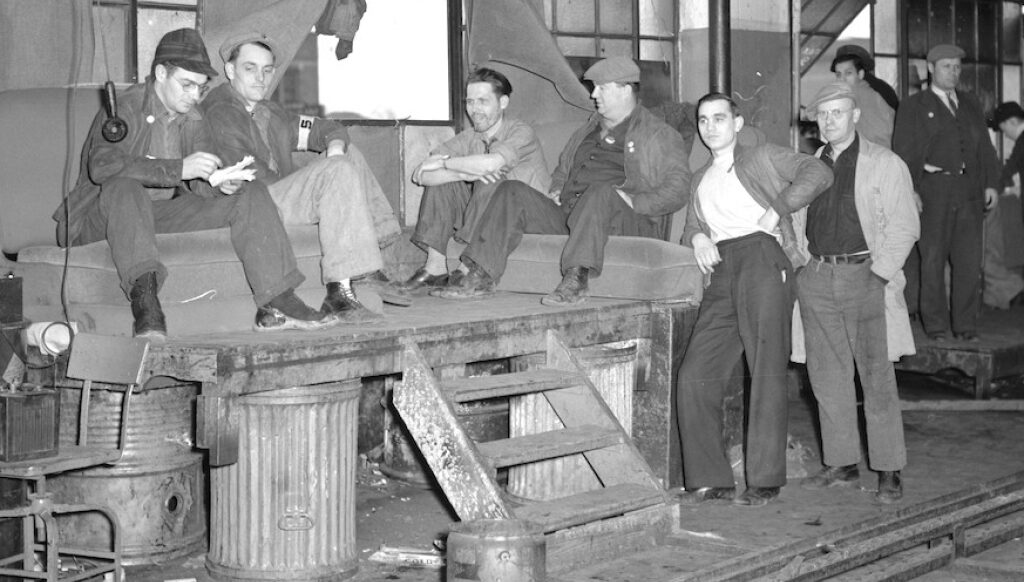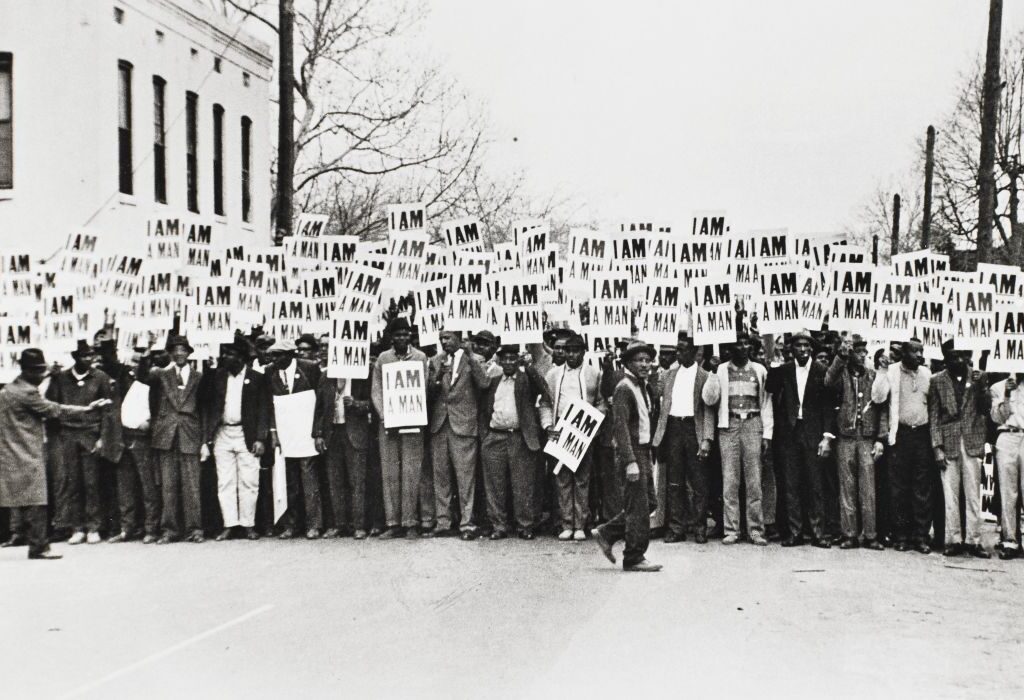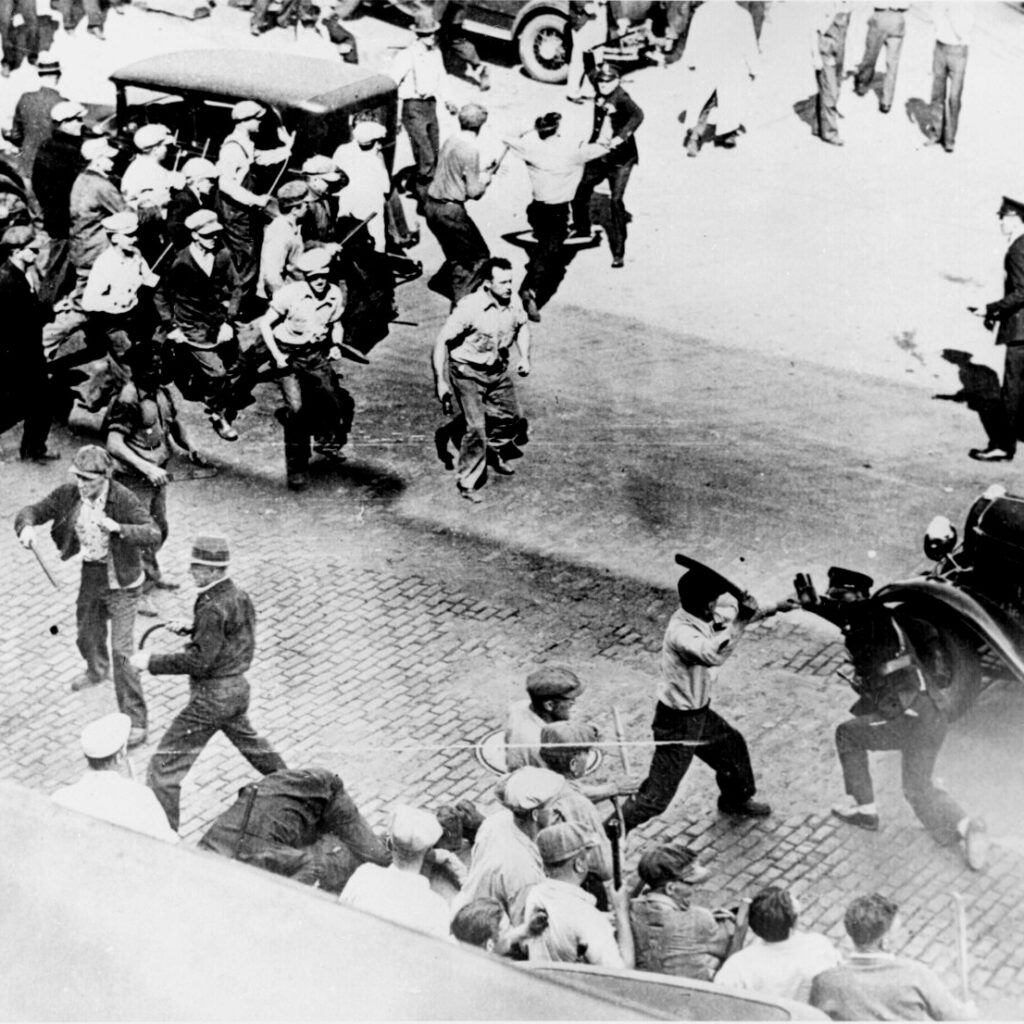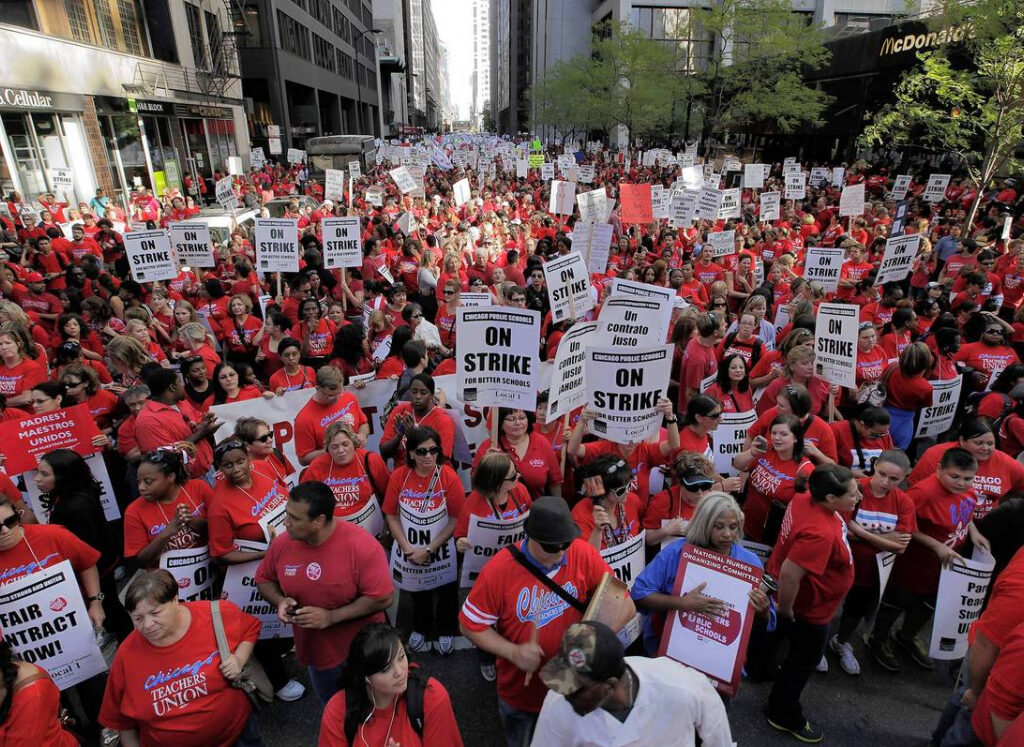WHAT CAN STRIKES WIN?
Withholding our labor – or even threatening to withhold it – is one of the most powerful levers workers have. Strikes have won huge advances for workers everywhere.
Strikes have forced employers to recognize unions. In December 1936, workers at a General Motors plant in Flint, Michigan took a stand by sitting down. Their union, the United Auto Workers, had been formed just a year before — it was a fledgling union with an ambitious vision. GM workers resented unsustainable productivity expectations and the arbitrary control supervisors wielded over them. But a victory at GM, then the world’s largest corporation, was inconceivable to most people at the time. Just before the New Years holiday, recognizing that the facility was a union hotbed, GM attempted to move critical pieces of machinery from the plant to facilities where the union didn’t yet have a stronghold. Workers knew they could not wait. They occupied the plant, escorting out supervisors and locking the gates. Workers quickly occupied another key plant in Flint, and the union announced that it would not settle the strike without being recognized as the sole bargaining agent across all GM facilities. The strike spread like wildfire: Within days, plants had been occupied in Toledo, Detroit, and St. Louis. Within six weeks, the company capitulated. It recognized the union and signed a master agreement days later.

Strikes played a key role in the Civil Rights movement. Throughout the 1960s, Memphis sanitation workers struggled against low pay, racist discrimination, and precarious working conditions. Their fight came to a head in February 1968, when sanitation workers Echol Cole and Robert Walker were crushed to death by a malfunctioning garbage compactor. After the city failed to act — part of a broader pattern of negligence towards its Black workforce — 1,300 Black workers walked out, demanding fair pay, safety protections, and union recognition. While the City Council voted to recognize the union, Mayor Henry Loeb rejected their vote, arguing that only he had the authority to do so. Within weeks, more than 10,000 tons of garbage had piled up throughout the city. Community supporters organized boycotts and a sit-in at city hall. In March, Martin Luther King Jr. spoke to a crowd of 25,000 in support of the workers. Weeks later, he returned to Memphis, and on April 3 delivered his final speech in support of the workers. He was assassinated the next day. Fearing riots, Loeb called in the National Guard, but still refused to recognize the union. Under pressure from President Lyndon B. Johnson, negotiators reached a deal on April 16: Workers won raises, union recognition, and protections against discrimination on the job.

Strikes built the labor movement. The mass strikes of the 1930s led to the establishment of unions like the Teamsters and the International Longshore and Warehouse Union. Fresh off the heels of the Flint sit-down strike, the mere threat of a strike moved industry giant U.S. Steel to sign a collective bargaining agreement with the nascent Steel Workers Organizing Committee. This period of worker revolt pressured President Franklin D. Roosevelt to advance the National Labor Relations Act, which enshrined the right to form and join unions, and to collectively bargain. Within two decades, over a third of the workforce was unionized, which was crucial to winning the highest wages and wealth-sharing in the history of the country. The unionization of the public sector was also largely accomplished through strikes, often illegal, like the Great Postal Wildcat Strike of 1970, when postal workers won the right to collective bargaining.

Strikes have won improvements for the wider community. In September 2012, the Chicago Teachers Union electrified the nation as 26,000 teachers, clinicians, and support staff walked off the job. Facing an agenda of privatization and school closures, workers shut down the school system for a week. What they won extended far beyond traditional economic demands like raises and lower health care costs (though they won those too!). They won victories for the wider community, like smaller class sizes. The CTU has built on those victories in subsequent contract fights: They’ve won protections for academic freedom, protections for immigrant students, and the creation of LGBTQIA+ safe spaces in schools.
